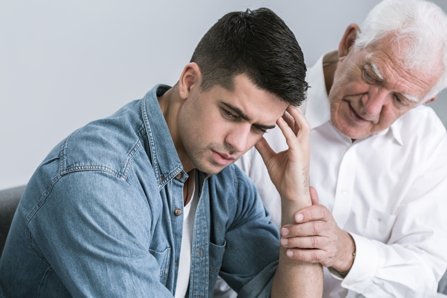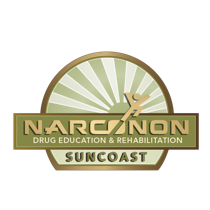The Addict, Being Right, and the Role of Interventions

When a family first realizes their son, daughter, mother or father is a drug addict, they experience many emotions, judgments and sudden realizations.
“What an idiot! He did it again!”
“That’s what all the money we sent got spent on?!”
“Yeah, I’m sure his computer really “broke.”
“I’ll bet my necklace I can’t find is in a pawn shop…”
Sometimes families find it hard to believe that their once well-put-together, straight-laced, and family-centric loved one is now so disrespectful, hostile and cold, while blithely lying through their teeth to everyone, saying that they’re totally fine, have no problems and that everyone else is “nuts.”
“I’m fine!”
“What’s everyone’s problem?”
“Worry about yourself!”
“I’m not doing anything wrong!”
One family member is crying while the other wants to beat the addict to a pulp but unfortunately, flowing tears and the threat of violence won’t solve anything other than creating more discord within the household and possibly a domestic violence charge. Families know they’ve been taken advantage of; doling out thousands of dollars because the addict is always broke and having some sort of immediate crisis, replacing cars, paying doctor’s bills, etc. while the addict casually lays on YOUR couch eating Cheetos because they’ve lost yet another job.
“Stop mom! It wasn’t my fault.”
“They were laying people off and I was one of them.”
Now that the cat is out of the proverbial bag one of two things may happen: you’ll offer the addict help and get them checked into a rehabilitation program to take control of their life or they’ll fight back, reject treatment, take off from the house and get loaded. The addict blows off the family because to accept help means to be wrong for ALL the drug use, ALL the heartache, ALL the 1am fights with dad and responsible for their own failures. The addict won’t accept this, well, because drugs are the SOLUTION to their problems so their behavior is just so right…right?
This is when an intervention becomes necessary. The addict is holding on so tight to needing to be right and definitely isn’t capable of being thoroughly honest with the family. No addict is ever going to say:
“I’ve stolen a bunch of money from you to get heroin.”
“I shoot up 5 times a day.”
“I sold my body for drugs.”
Mediation by a neutral party can be instrumental in having a loved one agree to treatment, especially by someone who has been there, done that and got the t-shirt. Most interventionists have gone through addiction themselves, which gives them credibility to the addict. When the addict is “jonesing out” for heroin and crack, the interventionist literally knows how that feels and didn’t just study it in some licensing class text book. He can “level” with the addict, get in really good communication with him, and hear his concerns and fears. Eventually, the addict may realize he wants to give recovery a try. That’s all it takes. Separate the addict from the family, de-stimulate him and get the addict feeling as though he’s right for letting his guard down. This is what makes for a successful intervention.
Having a family member who struggles with substance abuse is unsettling, scary and highly stressful. Most families will stop at nothing to get their loved one the help they so desperately need. Sometimes the situation can blow up in the face of the family because everyone wants to be right. When the family is distraught and feeling helpless there are people out there that can help!

